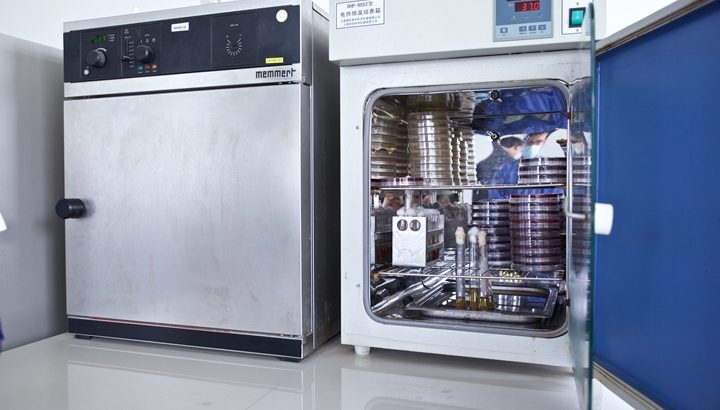Data on incidence of enteric fever are unreliable due to the lack of specificity and sensitivity of the current gold standard diagnostic methods (blood culture or serological Widal and Felix test). To overcome this issue, Fondation Mérieux, in collaboration with Pasteur Institute, the Child Health Research Foundation (CHRF), and Fast Track Diagnostics, received a grant from the Bill and Melinda Gates Foundation (BMGF) to develop a new diagnostic test for enteric fever that would improve surveillance and epidemiological studies. This new test combines a pre-enrichment step of blood sample in a bile environment with a real-time multiplex molecular detection of the pathogens (S. Typhi and S. Paratyphi A).
Trials were run at the Shishu Hospital in Bangladesh on children with fever (>38.5 °C) with suspected typhoid fever using 5 ml of blood. The results show a greater sensitivity than blood culture (93.6% vs. 61.7%) without any loss of specificity. To ensure the test could be used in a pediatric setting with children less than 2 years of age, a new trial using 3 ml of blood for the test was carried out in collaboration with the CHRF and the International Centre for Diarrhoeal Disease Research in Bangladesh (icddr,b). The results, soon to be published, confirmed the prior findings of greater sensitivity as well as validated the use of 3 ml of blood sample for the assay.
Through a new BMGF grant, Fondation Merieux is launching an evaluation of their molecular assay in Ghana, Malawi, and Burkina Faso. Samples testing officially started in Ghana in June and should be implemented soon in Malawi and Burkina Faso. The generated data should sustain the diagnostic test as a reliable means to evaluate the disease burden and to guide typhoid control.
Photo Credit: Mithila Jariwala



